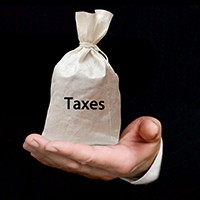Tax Season 2018: Refunds Won’t Flow Before End of February

Filing a tax return is the first, and often most important, financial transaction of the year for millions of Canadians. What’s different in 2018? For starters, the government is hanging on to early filers’ refunds longer than ever. With last year’s average tax refund clocking in at just over $1,735, that’s a big deposit that cash-strapped Canadians don’t have for their RRSP or TFSA deposit.
The taxman won’t start accepting tax returns for electronic filing until February 26—two weeks later than 2016 and one week later than year. That means early filers won’t receive their tax refunds until March.
Tax filing is really all about how much of your own money you get to keep, and that begins with making sure you only pay the correct amount of tax—no more—and that it gets into your pocket as quickly as possible so you can use it to pay down debt or save for your future.
That’s critical because the single most important financial question for most Canadians still is, “Will I have enough?”
A first line of defense in making sure you do, is not to pay too much off the top of gross earnings in withholding taxes. Ask your tax advisor about what you can do to reduce that risk. It is possible to make a request to reduce your withholding taxes in some cases, using form T1213 Request to Reduce Tax Deductions at Source.
The annual tax filing season also gives families a deliberate opportunity to look at last year’s financial results and rethink their savings opportunities.
Canadians love their tax refunds; many consider it to be a type of forced savings. It’s always amazing that so many people don’t connect the dots between their tax filing requirements, the time value of money and sound financial planning. Also: Making an interest-free loan to the government for an extended period of time, in excess of your tax obligations, works against your investment potential.
Bottom line: It’s unfortunate that CRA will be holding up Canadians’ tax refunds for an extra week this year: two weeks longer than the year before! Remember, the sooner the money is in your hands and the longer it stays invested, the more you’ll save in the long run. So file your tax return—sooner, rather than later.
Additional Educational Resources: Knowledge Bureau’s Real Wealth Manager (RWM) program, DFA-Tax Services Specialist designation
©2018 Knowledge Bureau Inc. All Rights Reserved.
 |
 |
 |
 |
|
Refer a Friend |
Research |
Calculators |
Course Trials |
 |
 |
 |
 |